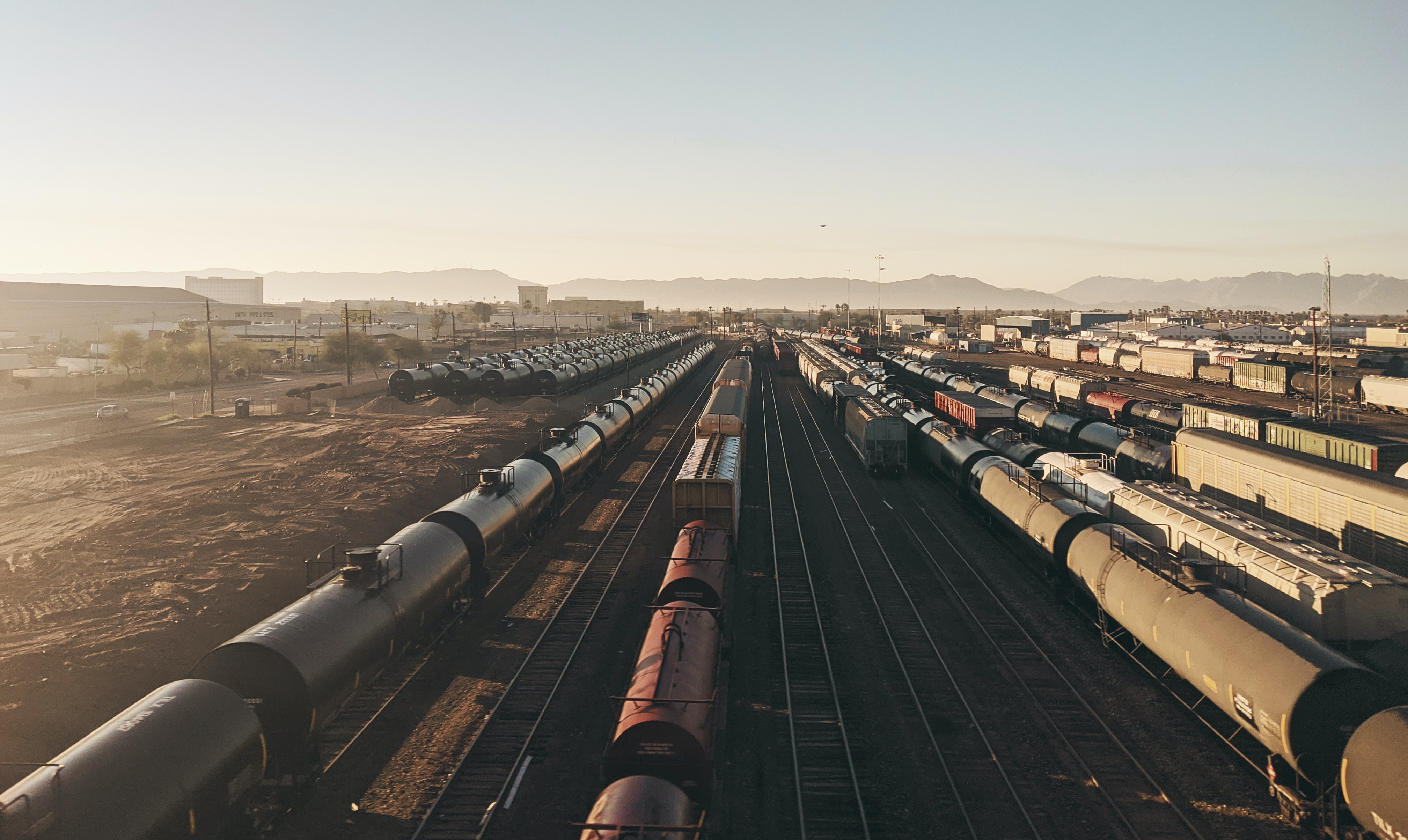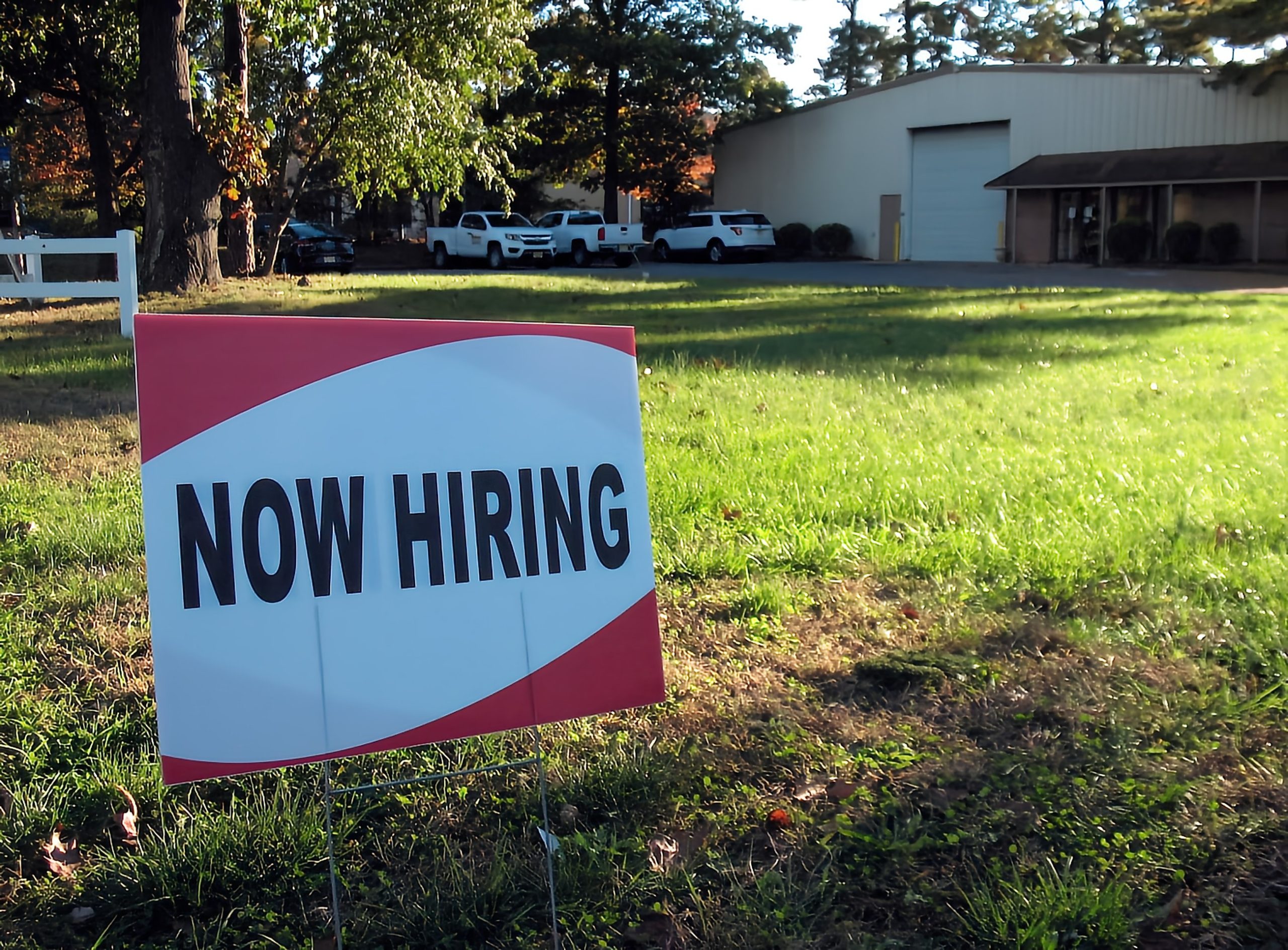Posts tagged Supply chain

Biden administration jumps into rail, union talks hoping to avert strike
September 8, 2022 // Such a work stoppage runs the risk of stymieing the U.S.’ supply chain at a point when the system is already strained, prices are historically high, and the peak season for agricultural commodities is just around the corner. Thirteen unions representing U.S. railroad workers have spent years renegotiating their contracts with carriers represented by the National Carriers’ Conference Committee. SMART-TD President Jeremy Ferguson, BLET President Dennis Pierce,
MCMAHON: On Labor Day, The Data Shows The Struggles Of Our Country’s Small Businesses And Workers
September 7, 2022 // Research from Alignable shows that 40% of small businesses could not pay their rent in August, and the most affected sectors are agriculture, automotive, restaurants, and education. And when you ask these small businesses if they think things will improve, research from CNBC Small Business Index demonstrates that 77% will tell you that they expect inflation to get worse, while 57% believe we are already in a recession.
Hormel workers at Corn Nuts plant go on strike
August 23, 2022 // While the strike at the California Corn Nuts plant is still in its infancy and unlikely to impact the supply of the crunchy snack, a long-term ordeal could eventually make its way to store shelves. The Fresno Bee, citing the union, noted the estimated 40 workers on strike include the entire production team. As a result, the facility will not make additional products until an agreement is reached.

Californifying the U.S. Labor Market
August 23, 2022 // The Biden administration came into office with a sweeping union agenda embodied in the PRO Act, which would have rewritten key elements of decades-old American labor law. Stymied in Congress, however, the administration now seems likely to impose at least one component of that legislation on the workplace through a Department of Labor rule that would narrow the definition of an independent contractor in ways similar to California’s controversial AB5 law. Doing so would likely upset employment policies and practices at a vast array of businesses nationwide, just as has happened in the Golden State, where freelancers lost work because companies couldn’t afford to employ them full-time and truckers recently shut down a port to protest efforts to end their independent status. In the post-Covid world, workers are seeking more flexibility in income-earning. The Biden administration’s effort, which views the independent contractor almost exclusively as an exploited worker denied the benefits of full employment, is a step backward for individual workers—but a gift to unions.

Exclusive: Biden’s emergency board calls for railroad wage hikes to resolve contract talks
August 18, 2022 // U.S. President Joe Biden's emergency board tasked with helping major freight railroads and unions end a contract negotiation stalemate proposed on Tuesday annual wage increases of between 4% and 7% through 2024, according to a report seen by Reuters. The board also recommended in its 119-page report set to be made public as early as Wednesday a 3% retroactive increase for 2020 and 3.5% for 2021, when the rail workers did not have a contract, along with five $1,000 annual bonuses and an additional paid day off.
Booming US cannabis industry seen as fertile ground for union expansion
August 3, 2022 // Union organizing in the cannabis industry has driven a surge of union elections in retail, one of the few industries to experience unionization gains in recent years, winning 18 out of 26 union elections in 2021. The United Food and Commercial Workers and the Teamsters both represent thousands of workers in the cannabis industry and are leading union organizing campaigns to keep up with the pace of the industry’s growth.

Commentary: Is the labor market really as good as the administration says?
July 27, 2022 // Most significantly, 18 months’ worth of bonus unemployment benefits that paid most people more to stay on the sidelines than to work caused millions of people to leave the labor market. Meanwhile, Washington stimulated consumer and business demand for goods and services by flooding the economy with trillions of dollars in so-called COVID-19 relief — about half of which was money printed by the Federal Reserve.
Trucker strike in the Port of Oakland threatens supply chain disruptions
July 22, 2022 // R Street Institute’s western region director, Steven Greenhut, who lives in California, is not convinced that his state’s current government will be up to fixing the problem. “California lawmakers exempted more than 100 professions from their misguided ban on independent contracting, Assembly Bill 5,” he told the Washington Examiner. “But they never bothered to address the impact of their law on trucking, which is one of the most important functions in our economy.” Greenhut said it was “astounding” that lawmakers didn’t act on this “given the ongoing supply chain disruptions and the backlog at the LA area ports.” Danny Wan, diesel emission rules

Department of Labor Rule – Coalition Letter
July 22, 2022 // The January 7, 2021 DOL rule has provided clarity to the decades-old economic realities test for the modern workforce, helping to apply determinations in light of the different types of work and technologies used to work and connect with customers today. Instead of removing this clear and sensible standard and attempting to diminish or eliminate independent contracting, we urge you to preserve paths to self-employment that allow tens of millions of working Americans, parents of children with special needs, workers seeking career changes, disabled workers and workers caring for disabled family members, and entrepreneurs growing small businesses of their own to pursue work on their own terms. Brent Wm. Gardner, Brandon Arnold, Grover Norquist, Michael J. Lotito, Greg Sindelar, Krisztina Pusok, Ph. D., The American Consumer, American Legislative Exchange Council, Lisa B. Nelson, Center for Freedom and Prosperity, Andrew F. Quinlan, Robert Fellner, Heather R. Higgins, Independent Women's Voice, Bethany Marcum, Alaska Policy Forum, Mike Stenhouse, Mike Hruby, New Jobs America, Paul Gessing, Rio Grande Foundation, Seton Motley, Less Government, Robert Alt, Steve Delie, Brian Minnich, Daniel Erspamer, Pelican Institute, Eric Peterson, Pelican Center for Technology and Innovation, Randy Hicks, Georgia Center for Opportunity, Alliance for Opportunity, Jeffrey Mazzella, Center for Individual Freedom, Douglas Carswell, Mississippi Center for Public Policy, David Williams, Taxpayers Protection Alliance, Ryan Ellis, Center for a Free Economy, Phil Kerpen, American Commitment, James Taylor, The Heartland Institute, Adam Brandon, FreedomWorks, Elaine Parker, Job Creators Network Foundation, Brandon Dutcher, Oklahoma Council of Public Affairs, Thomas A. Schatz, Citizens Against Government Waste, Justin Owen, Beacon Center of Tennessee, Matthew Kandrach, Consumer Action for a Strong Economy, Charles Mitchell, Commonwealth Foundation, James L. Martin, 60 Plus Association, Saulius “Saul” Anuzis, 60 Plus Association,
Biden averts freight railroad strike – for now
July 18, 2022 // The presidential board can only make nonbinding recommendations on the railroad contracts, but those will serve as the basis for a new round of negotiations that could yield a contract that has eluded the railroads since talks began more than two years ago. Even if those efforts fail, Congress would likely intervene to prevent a strike. Lawmakers could impose terms on the railroads and their 12 unions at that point or take other action to keep the trains moving. The National Carriers’ Conference Committee that represents Union Pacific, BNSF, CSX, Norfolk Southern, Kansas City Southern and other railroads said it believes the wage increases railroads are offering are fair based on other recent major labor agreements, but the unions say none of the offers so far do enough to offset inflation or reflect the current worker shortages. Plus, the railroads want workers to pay more of their health insurance costs, which the unions say would eat up most, if not all, of the proposed raises. Rob Benedict, American Fuel and Petrochemical Manufacturers, Brendan Branon, Dennis Pierce, Jeremy Ferguson,
